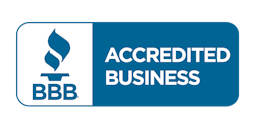
5 Simple Ways to Reduce Your Taxes
Topic - Personal finance
Published by Greensprout Team | 11/30/22
Greensprout.com is an independent, advertising supported comparison website. The products or offers that appear on this website are from third party partners and advertisers from which Greensprout.com receives compensation.
Our experts have put together 5 of the best ways to help lower your tax obligations this year.
We've all heard the old saying, "There are only 2 guarantees in life: death and taxes." While paying taxes is unavoidable, you can make smart moves to help reduce your overall tax burdenóespecially if you plan ahead.
Don't wait until your taxes are almost due before you start trying to save on your tax expense. Position yourself early on to get the most benefit. Some of the tips outlined here are methods you can use throughout the year, and others need to be done within a specific time frame (before the end of the year), so pay close attention and use each tip to help you save as much money as possible.
1. Donate to an appropriate charity.
As long as the charitable organization meets the IRS guidelines, this is an easy way to lower your taxes and do something good for your community.
The amount you can deduct depends on whether you file for a standard deduction or an itemized deduction. With a standard deduction, you may deduct up to $600 in cash.
If you are filing an itemized deduction, it gets a little more complicated. You may deduct qualified cash contributions up to 100% of your annual gross income. In addition, you may deduct a value for donating items/property; see the IRS guidelines for more detailed instructions.
2. Contribute to an IRA.
You might be familiar with IRA retirement accounts, but did you also know that such an account can help you save money on your taxes? The money you invest in your IRA is usually tax-deductible, as long as it meets the IRA's guidelines.
If your place of work does not have a retirement plan to cover you, then all traditional IRA contributions should be deductible. If your workplace does provide a retirement plan, then some of your IRA contributions might still be tax-deductible. This will depend on your modified adjusted gross income. See IRS guidelines for more details.
If you're 50 years of age or older, your contribution limit is $7,000 (2021), and if you're under 50, it's $6,000. We recommend maxing out your deductible contribution limit every year, as this is a great way for you to save for your future as well as reduce your taxes.
3. Max out your 401(k) investments.
Many employers offer a 401(k) retirement account, which is a great way to reduce your taxes. This is because traditional 401(k) contributions are considered pre-tax, meaning they lower your overall taxable income on your W-2. Not only does this reduce the amount of tax you owe, but it also allows you to put more away for your retirement.
We recommend maxing out on the allowable contribution you can make, which, for 2021, is $19,500 for those under 50 and $26,000 for those aged 50 and over. As we mentioned before, this is one of those items that you can't leave until the end of the year, so start making your contributions right away so that you can reach the max limit.
4. Make use of your health savings account.
A health savings account (HSA) can help you reduce your taxable income. Just like a 401(k), the contributions you make to this account are pre-tax. Not everyone has access to an HSA, but if you do, you may be able to deduct some or all of your investmentóup to $3,600 for single plan holders, and up to $7,200 for family plan holders.
5. Play the accelerate/delay game
While your taxes might not be due until April of the following year, they are based on the calendar year ending Dec 31st. This provides a few unique opportunities for you to reduce the year's taxable incomeófor instance, by delaying income or accelerating expenses at the end of the calendar year.
If you are a homeowner who files an itemized deduction, you can accelerate the following year's January mortgage payment by paying it in December of the current year. What this does is it allows the interest portion of that payment to be deducted in the current year. You can continue to do this in subsequent years to continue getting the maximum 12 months of interest deductions.
Similarly, as a business owner who has payments due in December, it's possible for you to speak with your customers and delay their payment until January, thus reducing your taxable income for the current year. If your business is a Schedule C company, partnership, or S corporation and your business taxes pass through your personal tax return, you can also reduce your taxable income by paying those taxes early in December of the current year rather than waiting until April.
Conclusion
We hope that this article opened your eyes to some lucrative tax-saving opportunities to help you reduce your expenses this year. While not every individual will be able to use every clever tip discussed in this guide, we recommend doing your research and utilizing as many of these methods as you have available to you. Every bit helps!
Greensprout Newsletter

Yes! I want to recieve smart money tips and exclusive offers from Greensprout Team!
By submitting this form you agree to receive emails from Greensprout and to the privacy policy and terms.
Latest Stories
Published by Greensprout Team | 01/13/24
Published by Greensprout Team | 01/13/24
Zero-Day Options: Fast Profits or High Stakes? Here’s What You Need to Know
As Seen On













